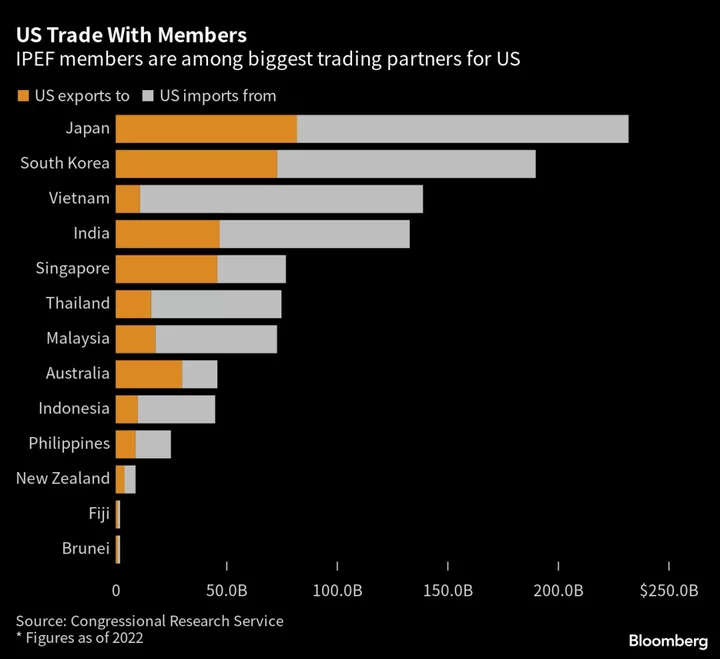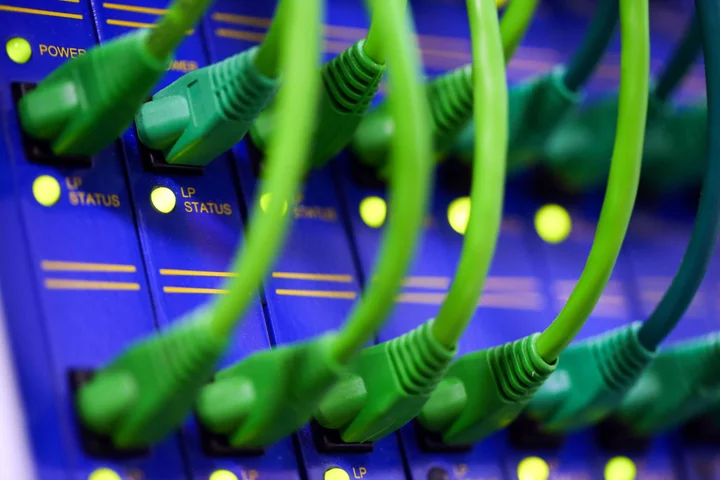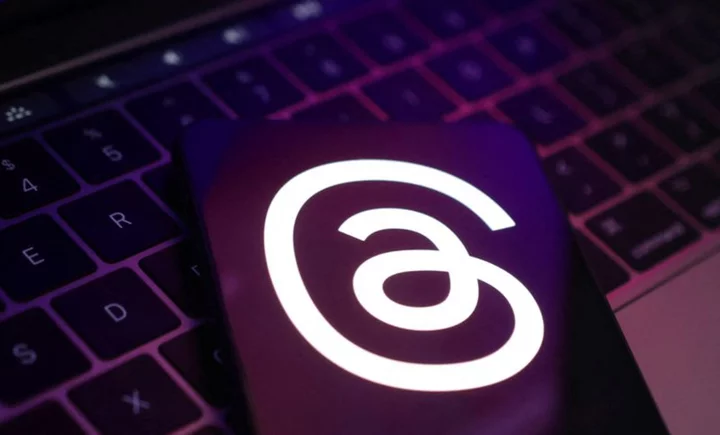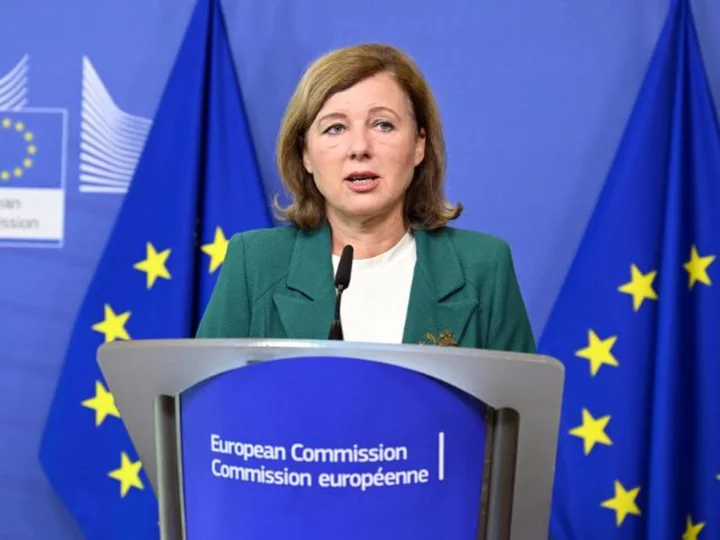The Biden administration and 13 partner nations in Asia and the Pacific are close to finishing agreements that include renewable energy and anti-corruption measures, while falling short of a deal on thornier trade issues.
“We’re close” to an agreement on two so-called pillars of the Indo-Pacific Economic Framework that encompass those issues, Jose Fernandez, US under secretary of state for economic growth, energy and the environment, said in an interview on Wednesday. “We’ve made lots of progress.”
The talks on the IPEF trade deal are happening as President Joe Biden hosts American partners at the Asia-Pacific Economic Cooperation summit in San Francisco, the first time the gathering has happened in the US since 2011. The framework represents Biden’s effort to counter the growing influence of China, whose President Xi Jinping he met with on Wednesday.
It marks the most significant American economic engagement in the region since President Donald Trump pulled the US out of the Trans-Pacific Partnership in 2017, although it doesn’t reduce tariffs like a traditional free-trade agreement.
Read more: How US and China Jockey for Economic Sway Across Asia: QuickTake
There are two other pillars of the deal. The one on supply chains was completed earlier this year, but the trade pillar has become bogged down, with some US politicians demanding strong environmental and labor protections be included. Bloomberg News reported earlier this week that the 14 nations won’t be able to announce the completion of the trade pillar at this meeting.
Australia Trade Minister Don Farrell was similarly optimistic as Fernandez regarding the clean energy and anti-corruption pillars.
“Good progress has been made,” Farrell said in an interview in San Francisco. “I’m hopeful that over the next couple of days we can finalize them and some announcements can be made.”









